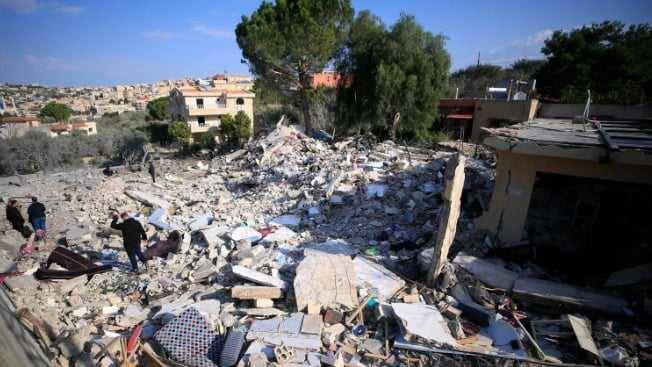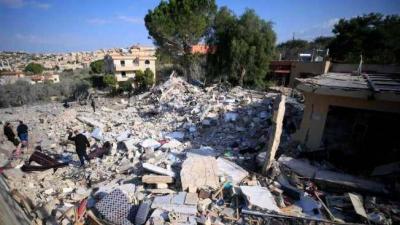It appears that the Israeli army has begun to implement what Israeli Defense Minister Yoav Galant mentioned about expanding the campaign against "Hezbollah" and increasing the rate of attacks. In recent days, it has intensified targeting the leadership of the party in the south and bombarded its sites and infrastructure. The latest of these operations was the assassination of Ismail Al-Zin, one of the leaders of the "Radwan" forces, as well as targeted strikes in Damascus and Aleppo, according to electronic news outlet "Al-Anbaa."
This Israeli escalation on the southern front, coupled with qualitative Israeli operations, has not been met with a counter-escalation so far, as "Hezbollah" has not raised the level of its attacks. This escalation is occurring alongside the diligent diplomatic efforts by both the United States and France to broker a ceasefire and establish a new agreement.
Sources following the issue indicate that "Israel has decided to escalate against Hezbollah," illustrated by the intensification of bombardments against the party, the assassination of its leaders, and the targeting of weapons depots and infrastructure. Meanwhile, the party has not increased its targeting scope and continues to bombard the same sites each day, which serves as a message from the party, backed by Iran, indicating a lack of desire for escalation.
In a conversation with "Al-Anbaa" electronic newspaper, sources highlight that "the south seems poised for a long-term war of attrition." They reference reports from Hebrew media yesterday about a message received by local authorities in northern Israel stating that the next school year may not begin due to the war, implying that the crisis could extend for many months.
However, sources rule out the option of a full-scale war between "Hezbollah" and the Israeli army. "It is clear that the party does not want a costly war with devastating results, while Israel lacks American backing to carry out any incursion into Lebanon, and it may not need such an operation if it manages to establish a new security equation at the borders with Lebanon through the current strikes."
Additionally, there is no expected ceasefire in the Gaza Strip, as last night saw notable escalation after Israeli Prime Minister Benjamin Netanyahu approved plans to enter Rafah, despite opposition from U.S. President Joe Biden. Thus, the invasion of Rafah will open a new chapter of escalation with potentially dire humanitarian consequences, given the presence of more than one million displaced Palestinians.
The uncertainty regarding a potential deal is further underscored by a statement from an unnamed Hamas official, indicating that the movement has not yet made a decision about whether to send a delegation to new negotiations in Doha or Cairo. The "divergent" positions prevent any "breakthrough" in negotiations for a ceasefire.
In summary, the time for settlement has not yet come in Lebanon or Gaza, and escalation is poised to dominate the situation in the coming days and weeks, as reflected by Israeli practices. It appears that the international community is unable to deter the Israeli killing machine, and even the United States has so far failed to curb Netanyahu’s desire to bombard the last safe areas in Gaza. What about Lebanon?




